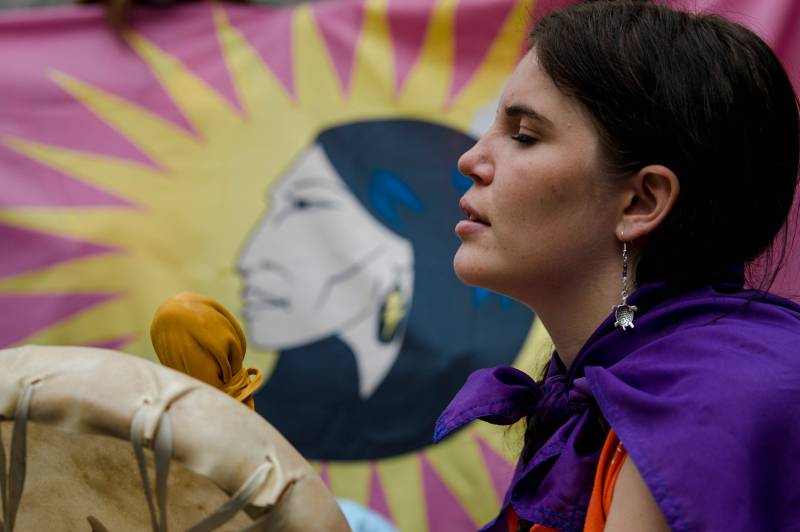For more than 100 years, the U.S. government forcibly relocated tens of thousands of Native American children to boarding schools under a federal assimilation program meant to suppress their languages, beliefs and identities. Historians estimate that by the early 20th century, more than three-quarters of all Native children attended one of more than 350 re-education schools, including an estimated 10 in California. In June, U.S. Interior Secretary Deb Haaland launched the Federal Indian Boarding School Initiative to investigate the loss of life, abuse and generational trauma associated with the schools. We’ll talk about the painful legacy of indigenous boarding schools in California and nationally.
Grappling With the History of Native American Boarding Schools in California and Beyond
53:31

A woman plays a drum as people from the indigenous community gather at Place du Canada in Montreal, Quebec, on July 1, 2021. The community gathered to honor the memory of over 750 unmarked graves discovered near a former Catholic boarding school for indigenous children in western Canada. (Andrej Ivanov / AFP)
Guests:
William Bauer, American Indian history professor, University of Nevada, Las Vegas, and enrolled tribal member of the Round Valley Indian Tribes in northern Mendocino County
Lauren Peters, member of the Agdaagux Tribe in the Unangax Nation in Alaska and doctoral student in Native American Studies at the University of California, Davis. She is working on a project to find and document Alaska Native children who died and are buried in Native American boarding school cemeteries.
Lindsay Montgomery, assistant professor of anthropology and co-author of "Objects of Survivance: A Material History of the American Indian School Experience", University of Arizona
Sponsored